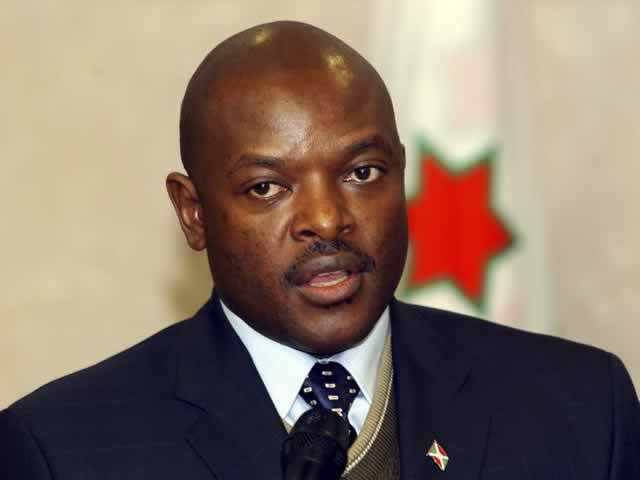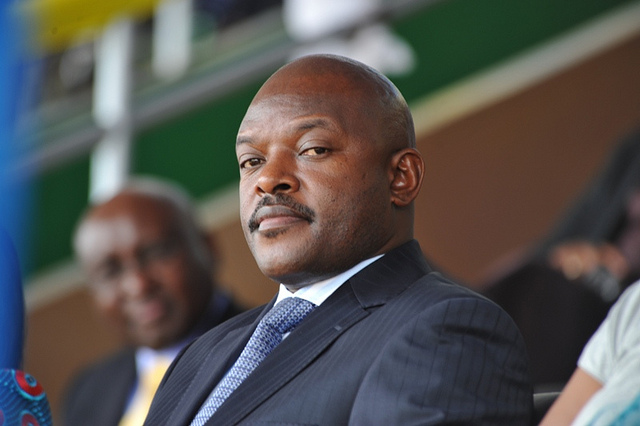Burundi accused of undermining key pillar of peace deal

Nairobi — Top envoys warned on Wednesday that Burundi’s government showed a “disturbing intent” on scrapping ethnic quotas in positions of power, a key pillar of a peace deal that ended a 13-year war. The diplomats, from the United Nations, African Union, European Union, Belgium and United States, called on all sides to “recommit to a transparent, inclusive, and comprehensive political dialogue”.
Violence began in April, when President Pierre Nkurunziza launched his now successful bid for a third term in power. In mid-May, rebel generals attempted a coup, which failed, but they have since launched a rebellion.
“Following months of unrest and the controversial electoral process, the Burundian government can begin to restore credibility through engagement in an inclusive political dialogue with political parties,” the envoys said in a statement. “The Burundian government can’t afford to continue down a road marred by instability, division, extreme economic decline, and humanitarian crisis,” they added.
There are widespread fears – both inside and outside Burundi — that the tiny country in the heart of central Africa’s troubled Great Lakes region could be plunged back into civil war.
The last civil war in Burundi, which ended in 2006, left at least 300,000 people dead.
But the envoys warned the government were undermining a central pillar of the 2000 agreement that paved the way to end that war, by repealing ethnic quotas for key positions of power between the majority Hutu and minority Tutsi peoples.
The envoys said the ending last week of ethnic and gender balances in the National Assembly’s leadership committee “indicate a disturbing intent by the ruling party to repeal one of the fundamental principles of peace and stability that enabled Burundi to emerge from protracted civil war”.
The joint statement was issued in Kenya by UN envoy Said Djinnit, AU envoy Ibrahima Fall, US envoy Thomas Perriello, Koen Vervaeke from the EU and Frank De Coninck of former colonial ruler Belgium.
Meanwhile, Agence France-Presse (AFP) and Radio France International (RFI) on Wednesday condemned the “total lack” of reaction by Burundi after their correspondent Esdras Ndikumana was detained and tortured by security forces.
“The violent aggression against our correspondent, recognised and respected by the entire profession on the African continent, cannot go unpunished,” AFP global news director Michele Leridon said.
RFI director Cecile Megie said the broadcaster was not satisfied with the “lack of reaction” from Burundi.
“We demand that those responsible for the abuse and torture suffered by Esdras Ndikumana are prosecuted and punished,” Megie said.
Ndikumana, 54, was taking pictures at the scene of the assassination of a top general in the capital Bujumbura on August 2, when he was arrested by members of the National Intelligence Service (SNR).
He was held for around two hours, during which he was subjected to severe beatings on his back, legs and the soles of his feet.
AFP and RFI sent a protest letter to Burundi’s government, but have received no reply, other than a text message acknowledging receipt of the letter.
AFP chairman Emmanuel Hoog has condemned the attack as “outrageous”.
Civil unrest erupted in Burundi began in April, when President Pierre Nkurunziza launched his now successful bid for a third term in power.
The political crisis has seen many independent media outlets shut down and many journalists have fled the country or have gone into hiding because of threats and attacks.
Ndikumana is being treated abroad for injuries including a broken finger, a torn eardrum, and pain in the legs and back. — AFP












Comments